News
2016.03.07
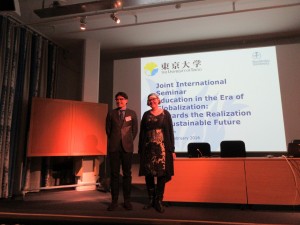
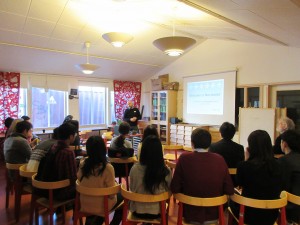
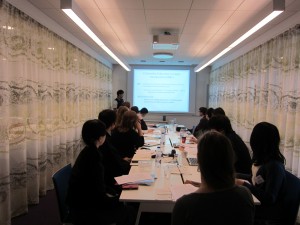
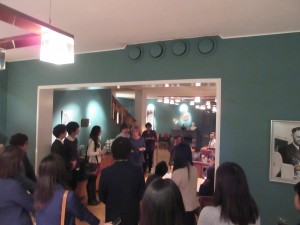
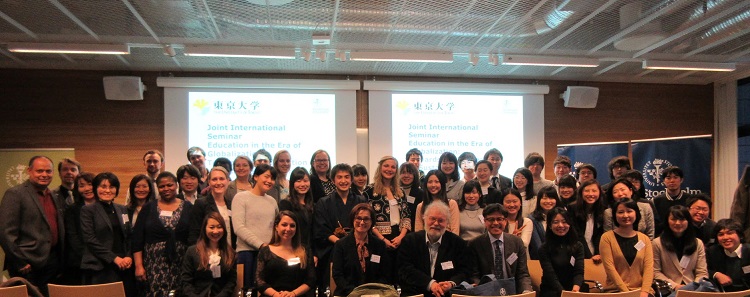
CESE calls for applicants from the doctorate students in the School of Education to encourage young researchers to conduct research projects with diverse perspectives. We support five research projects this year under the topic of “School Education in the Globalization Era”.
The final report seminar was held as student session in the international symposium “Education in the Era of Globalization: Towards the Realization of Sustainable Future” on February 24, 2016 at the Department of Education, Stockholm University that has an academic exchange agreement with the Graduate School of Education, the University of Tokyo.
There were culturally diverse participants including exchange students from both Stockholm University and University of Tokyo. Also, the presentations covered a wide range of methods and topics under the common theme of “School Education in the Globalization Era”. To present in English was a challenging since the majority of presenters were not native speakers of English. But the students presented well and were actively involved in Question and Answer sessions.
One of the participants of Young Scholar Training Program, Tetsuya Obayashi, reflected his experience of participating in the training.
I decided to join the training program in Sweden since I wanted to try presenting in an international conference. Since I worked for my research during the past six months, it was not easy to summarize and present the findings in ten minutes. Especially for Q&A, I had to be spontaneous so I was very nervous. Also, presenting our research to the international audience who were not familiar with the Japanese education system was not easy and involved a lot of efforts.
However, I was really happy that the participants were very attentive and supportive to our presentation, and we were able to have fruitful discussions overcoming language issues across disciplinary boundaries. I realized that listening carefully to one another is very important as well as to reflect to improve my presentation skill. I learned through this experience that in order to “realize education for sustainable future in the era of globalization,” which is also the theme of the international seminar, starts from listening carefully to the voices of people with different backgrounds.
In addition to the final report seminar, the study tour to Stockholm also included the campus tour in Stockholm University, and the visit to schools and the Ministry of Education. The volunteers from Stockholm University accompanied the students from University of Tokyo and they could communicate about their college life and issues in school education. It was jointly organized with the “Global Leadership Program in Sweden” for the undergraduate students in Department of Education. It was an excellent opportunity for learning and for international exchange both for the graduate and undergraduate students from Tokyo University and Stockholm University.
The results of the students’ research will be released as working paper of CESE. The students are expected to work further to develop the research and to write journal papers.
Please visit the Stockholm University website for their report of this seminar and tour in Stockholm.
Message from Mr. Brian Berry (Academic Writing Support Desk Coordinator)
Report from Stockholm University
(Tetsuya Obayashi, Master Student and the participant of Young Scholar Training Program, and Kanako Kusanagi, Project Researcher of Center for Excellence in School Education)
2016.02.08


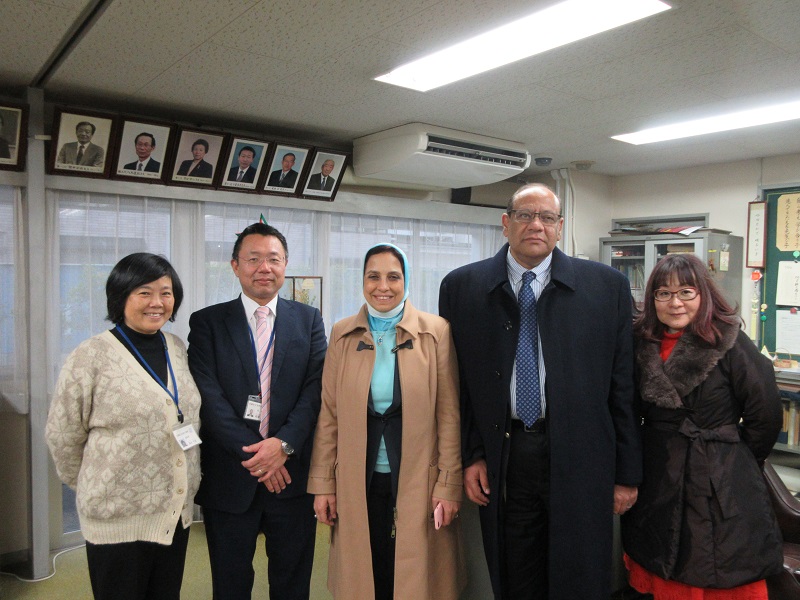
The General Director of Oasis International School, Ms. Esmat Lamei, and her husband and the owner of the school, Dr. Anis, visited the University of Tokyo on February 1, 2016. Oasis International School is the first private French school in Egypt and the first in the world authorized to teach in French the three programs of the International Baccalaureate Organization (IBO.)
Professor Tsuneyoshi gave a presentation titled “The Japanese Model of Whole Child Education: Tokkatsu” and explained the concept of educating the whole child, cognitive as well as social/emotional, and physical, guided by democratic principles, is the pillar of Japanese school education including the video of classroom activities for Tokkatsu. The visitors asked questions such as how Japanese teachers learn to teach Tokkatsu, how to evaluate Tokkatsu activities, and how to motivate teachers to engage in professional development.
The group also visited Miyamae Elementary School in Meguro City and observed the school activities. They ate school lunch with the first graders and observed how students organized themselves to participate in serving lunch and cleaning their classrooms. Afterwards, the principal Mr. Kashiwaba guided the group to watch extracurricular activities, the school farm, as well as the storage center for emergency. Since the school serves as the regional center for emergency evacuation, the storage for food and supply at the time of emergency is located there.
Ms. Esmat was impressed how the collaborative and holistic approach to educate students is embedded in Japanese school activities such as the sixth graders helping the first graders for cleaning, students taking initiatives for serving lunch and cleaning classrooms, and establishing partnership with parents and community through school farming. She said she wants to try the things she learned from the Japanese school.
(By Kanako Kusanagi, Project Researcher, Center for Excellence in School Education)
2015.12.15
2015.10.20
The Presidential Adviser for National security, Minister of Education, and officials from Egypt visited the University of Tokyo on October 14, 2015. Professor Tsuneyoshi gave a presentation titled “The Japanese Model of Whole Child Education: Tokkatsu” and explained the concept of educating the whole child, cognitive as well as social/emotional, and physical, guided by democratic principles, is the pillar of Japanese school education. These principles are embedded in daily school activities and essential for students’ development both academically and socially.
The Egyptian delegates were interested to know how Tokkatsu was incorporated into pre-service teacher training, how to conduct an assessment on Tokkatsu, and whether both boys and girls participate in special activities such as serving lunch for their classmates. The delegates visited Ibukata Elementary School and Koishikawa Junior/Senior High school to observe Tokkatsu activities.
(By Kanako Kusanagi, Project Researcher, Center for Excellence in School Education)
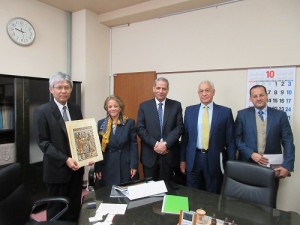
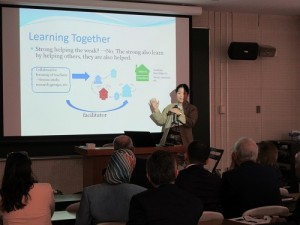
2015.04.22
ESE calls for graduate students’ research projects from the doctorate students in Education once a year in order to encourage the young researchers and their studies from various perspectives. The topic for 2015 is “School Education in the Globalization Era”, as in 2014.
Please download the guidlines for applicants and the application form from the Graduate School of Education HP (access restricted, written in Japanese) or the Campus Only page (Japanese) on CESE website.
Young Scholar Training Program (YSTP) 2015_poster(Japanese)
2015.03.18
2014.12.16
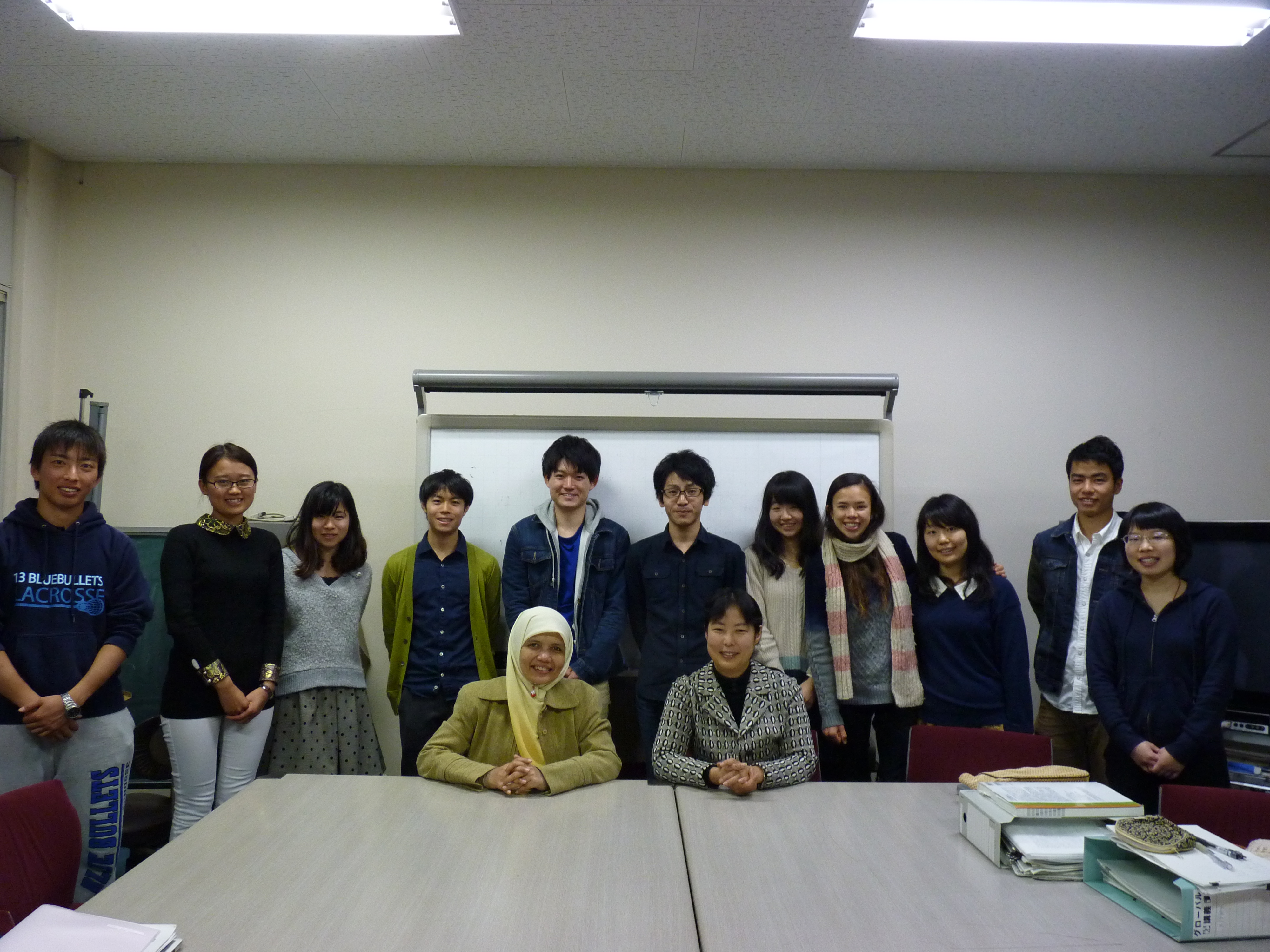
Dr. Mastura Badzis(International Islamic University Malaysia, Assistant Professor) visited CESE from Malaysia on December 12th and 18th, 2014. She came to Japan to learn Special Activities (Tokkatsu) in Japanese schools. She had an interview with Prof. Ryoko Tsuneyoshi, Director of CESE and participated in a lecture in Department of Education, University of Tokyo, as well as went to observe the schools.
2014.12.15
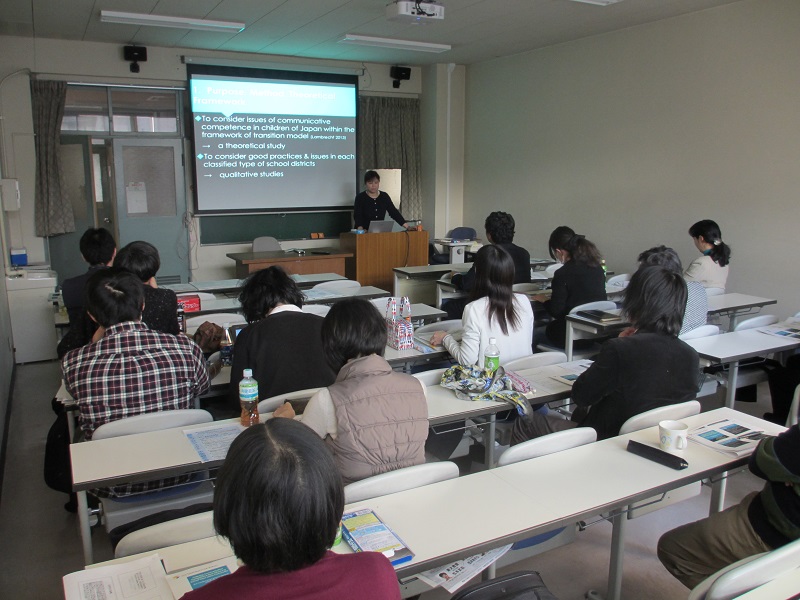
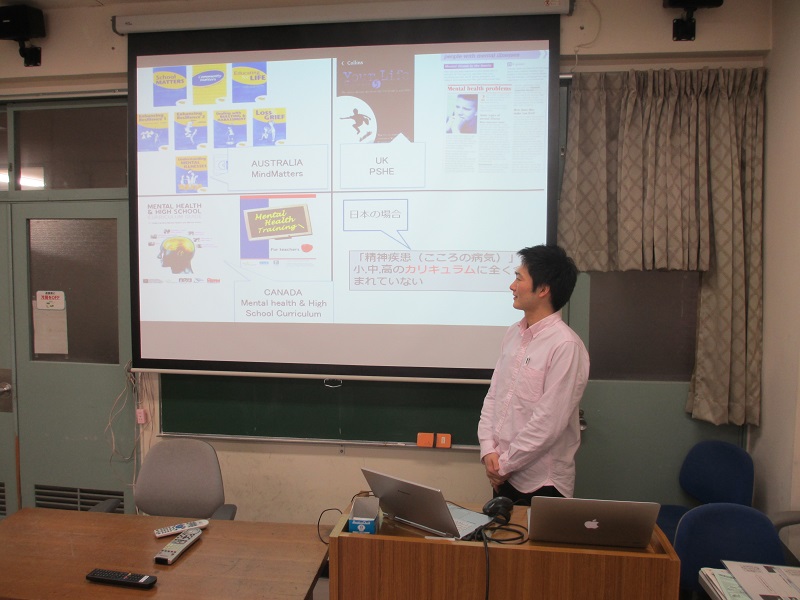
CESE calls for graduate students’ research projects from the doctorate students in Education once a year in order to encourage the young researchers and their studies from various perspectives. We support six research projects this year under the topic of “School Education in the Globalization Era”.
The progress report seminar of the graduate research projects was held on December 10, 2014. All the groups presented their excellent progress and showed their earnest attitudes toward their research. Some students gave their presentations in English because we will have the final report seminar in Stockholm in March 2015.
We learned that there are common issues to improve before the final report seminar in Stockholm throughout the research groups, such as to clearly express the research question, to have the appropriate range of focus and to simplify the conclusion, to explain in the international context, not to put too many words in the power point presentations etc. We look for their improved presentations in the final report seminar.
Thank you very much for the 25 attendees in the progress report seminar.
2014.10.22
We renewed our website on October 22.
Our old website (Japanese)
2014.06.05
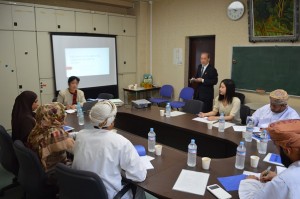
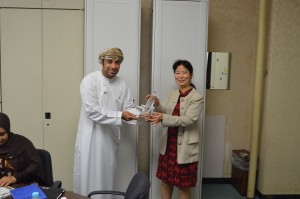
The delegation from Omani Ministry of Education visited the University of Tokyo on 5 June 2014. After having a talk with Prof. Haebara, and Prof. Tsuneyoshi at Hongo Campus, the University of Tokyo, they went to Koishikawa Junior High school to observe several lessons, including Tokkatsu (homeroom, cleaning, club activities etc.).
“The Omani delegation seemed to be particularly interested in a lesson of home economics. Also, they were most impressed by seeing that the students were cleaning the classrooms by themselves”.
(Reported by Aiko Komoto, a student in Ph.D. in Educational Psychology, Graduate School of Education)

















